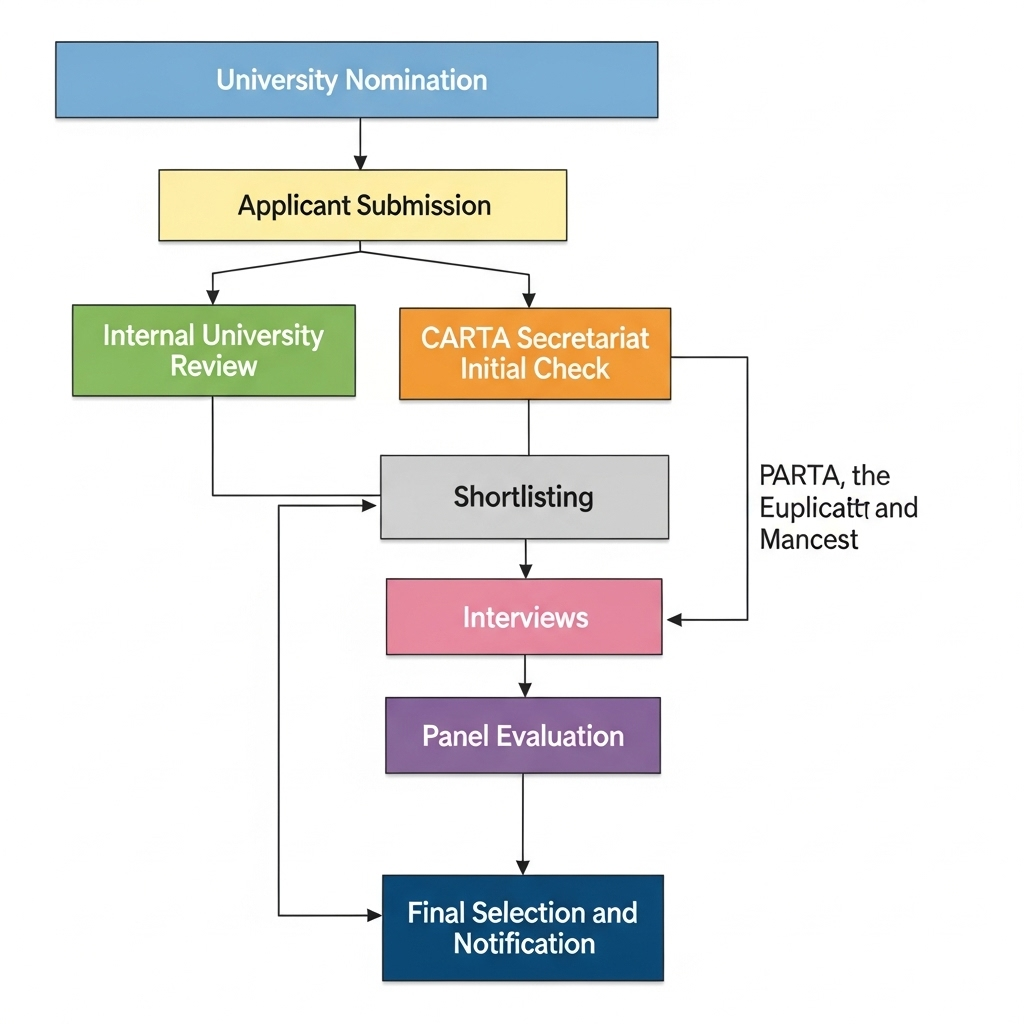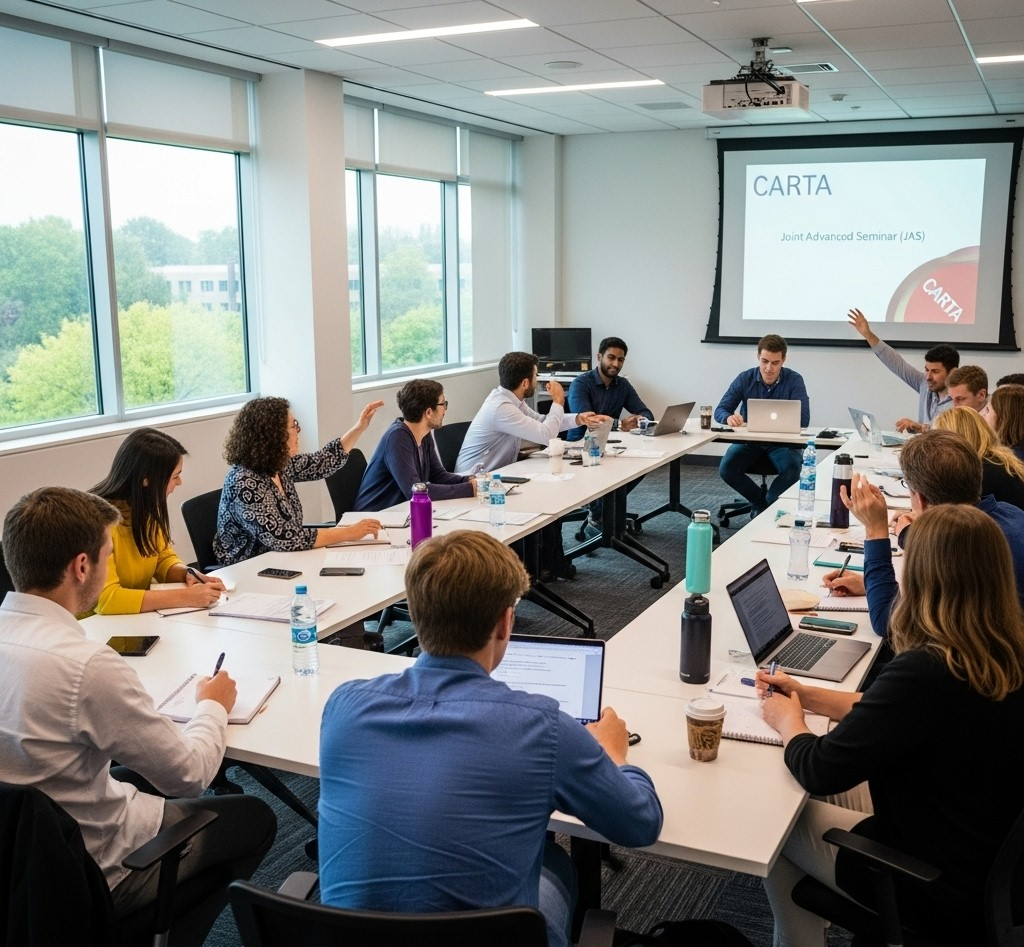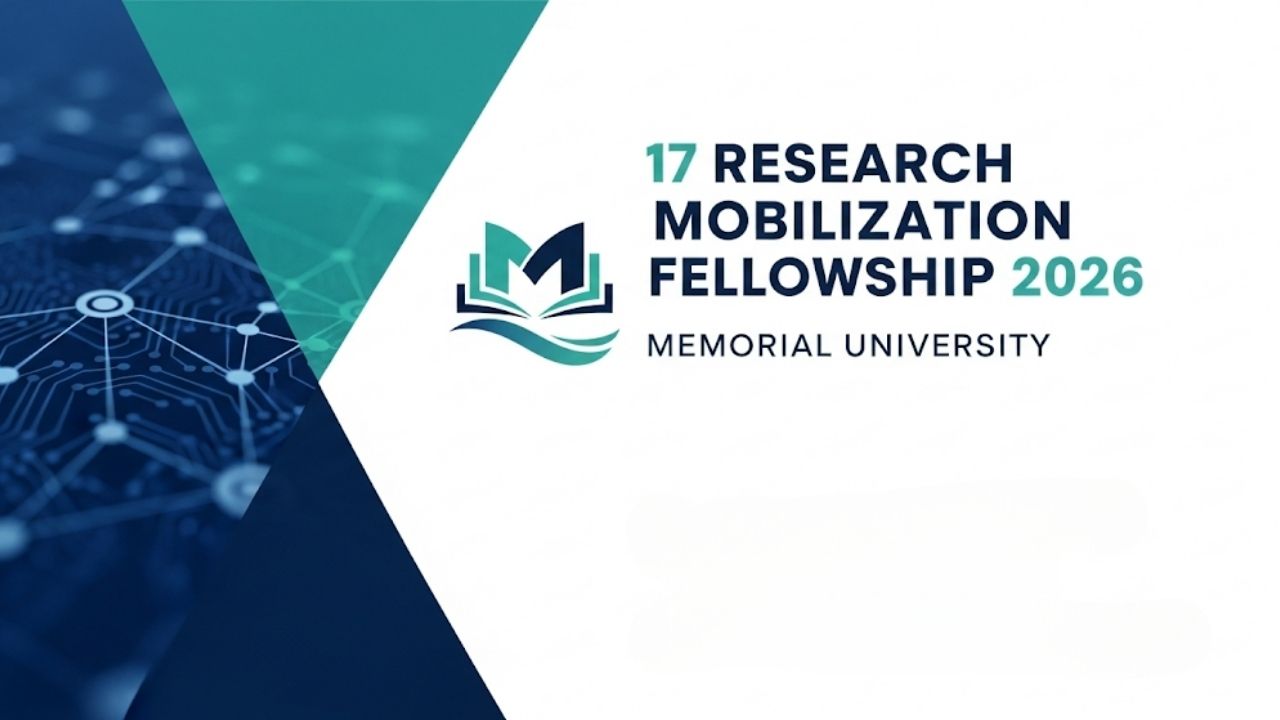Applying for the CARTA PhD Fellowships 2026 can feel like standing at the base of a huge mountain—exciting but incredibly daunting. You have the ambition and the vision to drive real change in African public and population health, but the path to a fully funded PhD can seem complex. This guide is your roadmap. We’ll break down every step, from checking your eligibility to crafting a standout proposal, transforming that mountain into a manageable, and conquerable, climb.

CARTA PhD Fellowships 2026
| Key Fact | Details | Why It Matters |
| Fellowship Focus | Public and Population Health and related fields. | Your research must align with CARTA’s core mission to tackle Africa’s pressing health challenges. |
| Funding Model | Fully funded, covering tuition, a monthly stipend, research activities, and travel costs for seminars. | This allows you to focus entirely on your research without financial burdens. |
| Core Eligibility | You must be a current staff member at one of the CARTA partner institutions. | This is a non-negotiable first step. Your application journey begins with your home university. |
| Application Cycle | Applications are typically announced late in the year, with deadlines around March/April. | Start preparing months in advance by checking the official CARTA website for the 2026 announcement. |
Securing a spot in the CARTA PhD Fellowships 2026 cohort is a challenging but immensely rewarding journey. It is a launchpad for a high-impact career and a lifelong community of peers dedicated to transforming health in Africa. By starting early, understanding the unique application process, and aligning your vision with CARTA’s mission, you can put forward a truly compelling case.
What Exactly is the CARTA Fellowship?
The Consortium for Advanced Research Training in Africa (CARTA) isn’t just another scholarship. Think of it as an incubator for the next generation of academic leaders in Africa. Launched in 2008, its mission is to strengthen research capacity and build a vibrant, networked community of scholars who can lead world-class research from within the continent.
What makes CARTA unique is its holistic approach. It provides more than just money; it offers a comprehensive doctoral training program that includes:
- Structured Training: Fellows participate in mandatory Joint Advanced Seminars (JAS), which are intensive residential workshops covering everything from research methodology to scientific writing and leadership.
- Supportive Mentorship: You gain access to a network of experienced supervisors and mentors from both African and international partner institutions.
- Powerful Networking: You become part of a lifelong cohort of CARTA fellows, creating invaluable connections across disciplines and countries.
Are You Eligible for the CARTA PhD Fellowships 2026?
Before you spend hours on your application, it’s vital to confirm you meet the strict eligibility criteria. I’ve seen many brilliant candidates falter because they overlooked a key requirement. Let’s make sure that’s not you.
The most critical requirement is your employment status. According to the official CARTA guidelines, you must be a member of academic or research staff at a CARTA member university or research institute. This is the foundational step; without it, you cannot proceed.
Here’s a checklist to see if you qualify:
- Employment: Are you a full-time staff member at a CARTA partner institution?
- Academic Background: Do you hold a Master’s degree in a field relevant to public and population health?
- Career Stage: Are you in the early stages of your research career?
- Commitment: Are you prepared to enroll as a PhD student at one of the CARTA partner universities (which may be different from your home institution)?
- Leave of Absence: Can you secure a letter from your home institution guaranteeing you will be granted study leave for the fellowship duration?
Your Step-by-Step CARTA Application Guide
Navigating the CARTA application is a two-stage process: first, you need to win the support of your home institution, and then you compete at the consortium level.

Step 1: Secure Your Home Institution’s Nomination
This is where the CARTA process differs from many other scholarships. You don’t apply directly to CARTA at first. Instead, you respond to an internal call for applications at your university. Each partner institution has its own internal review process to select a limited number of candidates to nominate for the fellowship.
- Action Plan: Keep a close watch on announcements from your university’s research office or relevant faculty. Network with current CARTA fellows and focal persons at your institution to stay informed about timelines and internal requirements.
Step 2: Develop a Winning Research Concept Note
Your concept note is the heart of your application. It must be clear, convincing, and directly relevant to African public and population health.
Your proposal should demonstrate:
- A Clear Problem: What pressing health issue are you addressing?
- Solid Objectives: What do you aim to discover or achieve?
- Feasible Methodology: How will you conduct the research?
- Potential Impact: Why does this research matter for your community, country, or the continent?
Step 3: Gather Your Essential Documents
Start collecting these documents well in advance to avoid last-minute stress:
- Updated CV: Highlight your research experience, publications, and any relevant skills.
- Academic Transcripts and Certificates: Ensure you have official copies.
- Research Concept Note: Polished and proofread.
- Letters of Recommendation: Choose referees who know you well and can speak to your academic and research potential.
- Letter of Support from your Head of Department confirming your staff status and their support for your application.
- Motivation Letter/Personal Statement: Your chance to tell your story.
Step 4: Submit Through the Online Portal
Once you have been nominated by your institution, you will be invited to submit your full application through CARTA’s online system. Treat this step with care: double-check every field, upload the correct documents, and submit well before the final deadline. Technical glitches can and do happen!
Secrets to a Standout Application: Beyond the Basics
Meeting the criteria is one thing; winning the fellowship is another. In my experience advising students, the applicants who succeed are those who demonstrate a deep understanding of CARTA’s vision.
Align with the CARTA Mission
Show the selection committee that you’re not just seeking a degree. Explain how your PhD will equip you to contribute back to your home institution and strengthen Africa’s research ecosystem. How will you use your new skills to mentor others, attract research funding, or influence policy? This “bigger picture” perspective is crucial.
Tell a Compelling Story
Your motivation letter should be more than a list of accomplishments. It should connect your personal journey, your research interests, and your future aspirations to CARTA’s goals. Why are you passionate about this specific area of public health? What personal or professional experiences have led you to this point? Make it authentic and memorable.

Your Ultimate Guide to the HISA Youth Fellowship 2025 at the University of Oxford
A Guide to the UAL International Postgraduate £25,000 Scholarships for 2025/26
FAQs
Q1:Can I apply for the CARTA fellowship if I am not a staff member at a partner institution?
No. This is the most important eligibility criterion. The CARTA model is designed to build capacity within its partner institutions, so you must have an existing staff position at one of them to be considered.
Q2:What specific fields of study are funded?
The focus is on public and population health. However, this is interpreted broadly and can include interdisciplinary projects from fields like sociology, economics, anthropology, or environmental science, as long as they have a clear and direct application to health issues.
Q3:When is the application deadline for the 2026 cohort?
Official dates for the Cohort 16 (2026) intake have not yet been announced. Based on previous cycles, the call for applications is typically released late in the preceding year, with university nomination deadlines around February/March and the final CARTA application deadline around April 30. Always check the official CARTA fellowships page for the most up-to-date information.
Q4:Is there an age limit for the fellowship?
While there is no strict age limit, CARTA fellowships are generally aimed at early-career researchers. The goal is to support academics who have the potential for a long and productive research career after their PhD.










